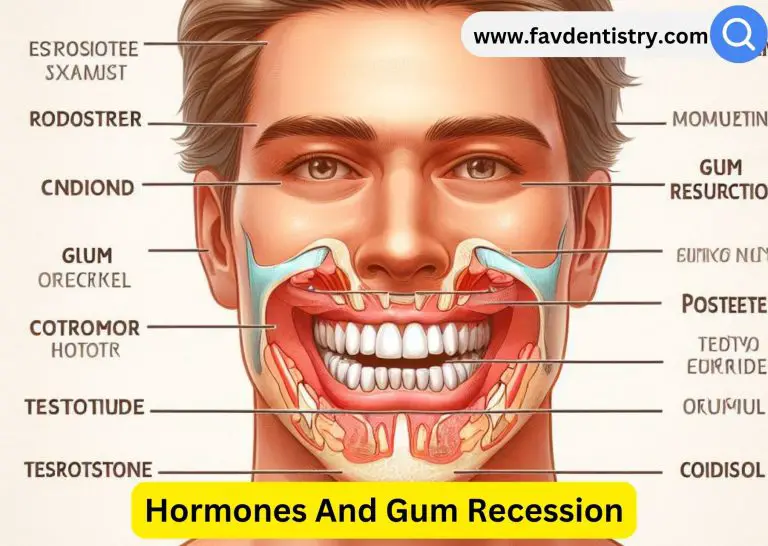What are the Fake Teeth Called?: Unveiling the Truth Behind Dental Prosthetics
Last Updated on 6 months by DR. ALBIN SIPES
The fake teeth are called dentures. Dentures are removable prosthetic devices that are used to replace missing teeth.
Dentures are a type of artificial teeth that are designed to replace missing teeth and restore oral functionality and aesthetics. They consist of prosthetic teeth attached to a gum-colored acrylic base that fits snugly over the gums. Dentures can be partial, used to replace a few missing teeth, or complete, used to replace all the teeth in the upper or lower jaw.
These prosthetic teeth are custom-made to ensure a proper fit and natural-looking appearance. Dentures are a popular solution for people who have lost their teeth due to dental issues, aging, or accidents. They provide support for facial muscles, improve speech, and allow for proper chewing and digestion. In addition to traditional dentures, there are also implant-supported dentures that are anchored to dental implants for added stability and support.
The Fascinating World Of Dental Prosthetics
Dental prosthetics, also known as fake teeth, have played a crucial role in oral health throughout history. These remarkable devices have evolved over time, adapting to the changing needs and advancements in dentistry. From simple replacements to complex implant-supported options, dental prosthetics aim to restore both the function and aesthetics of missing teeth.
They offer patients a chance to regain their confidence and improve their overall well-being. By filling the gaps left by missing teeth, dental prosthetics prevent various oral health issues such as shifting of remaining teeth, difficulty in chewing, and speech problems.
Whether it’s dentures, dental bridges, or dental implants, these prosthetics serve as durable and effective solutions for tooth loss. With advancements in technology, modern dental prosthetics now closely replicate the look and feel of natural teeth, providing a comfortable and natural smile for those who need it.
Understanding Different Types Of Dental Prosthetics
Fake teeth, also known as dental prosthetics, come in various forms. Traditional dentures are a popular choice for replacing missing teeth. These removable appliances offer a classic option that can be taken out and cleaned. On the other hand, dental implants are a more innovative solution for achieving a permanent smile.
By surgically placing titanium posts into the jawbone, these prosthetics provide a stable foundation for artificial teeth. Another option, dental bridges, are used to bridge the gap created by multiple missing teeth. They are supported by adjacent natural teeth or implants, effectively restoring both function and aesthetics.
Understanding the different types of dental prosthetics available can help you make an informed decision about the best option for your tooth replacement needs.
Debunking The Myths About Fake Teeth
Fake teeth, also known as dental prosthetics or dentures, are commonly misunderstood. Many people have misconceptions about these artificial teeth compared to natural ones. Contrary to popular belief, fake teeth aren’t very different from real teeth. Some assume that they are uncomfortable, but advancements in dentistry have made them much more comfortable to wear.
Others think that they look obviously fake, but modern dentures are designed to be natural-looking and blend seamlessly with your smile. It’s important to debunk these myths and understand that fake teeth can greatly improve your oral health and quality of life.
So, if you’re considering dental prosthetics, rest assured that they can provide a functional and aesthetically pleasing solution to missing teeth.
The Process Of Getting Fake Teeth
Fake teeth, also known as dental prosthetics or dentures, are a common solution for missing teeth. The process of getting fake teeth begins with an initial consultation that evaluates your oral health and discusses treatment options. It is essential to have a healthy foundation before preparing the mouth for prosthetics.
This involves addressing any underlying issues such as gum disease or decay. Next, the dental prosthetics are created and fitted based on molds taken of your mouth. This ensures a precise and comfortable fit. Throughout the process, adjustments may be made to achieve optimal results.
Whether you need partial or full dentures, fake teeth offer functionality and aesthetics, enabling you to smile confidently and enjoy eating.
The Pros And Cons Of Dental Prosthetics
Fake teeth, also known as dental prosthetics, have both pros and cons. The benefits of dental prosthetics for oral health and aesthetics are significant. They can improve your smile, restore chewing ability, and support facial tissues. Additionally, they are durable, affordable, and can be customized to match your natural teeth.
However, there are some drawbacks and considerations to keep in mind. Fake teeth may feel uncomfortable at first, and they require good oral hygiene to prevent complications. Moreover, they can sometimes affect speech or cause soreness in the mouth. Before choosing fake teeth, it’s important to consult with a dentist who can assess your specific needs and provide personalized advice.
Considering both the benefits and possible downsides is crucial in making an informed decision about dental prosthetics.
Caring For Your Dental Prosthetics
Fake teeth, also known as dental prosthetics, are artificial teeth used to replace missing or damaged teeth. Proper oral hygiene is essential for maintaining these prosthetics. Regular follow-up visits should be scheduled to ensure that the prosthetics are functioning correctly and to make any necessary adjustments.
It is important to brush and floss regularly, just as you would with natural teeth. Using a soft-bristled toothbrush and non-abrasive toothpaste can prevent damage to the prosthetics. Additionally, it is recommended to use an antimicrobial mouthwash to reduce the risk of infection.
Avoiding foods that are hard or sticky can also help prolong the lifespan of the prosthetics. By taking proper care of your dental prosthetics, you can ensure their longevity and maintain a healthy smile.
Beyond Aesthetics: Functional Benefits Of Dental Prosthetics
Dental prosthetics provide more than just aesthetic benefits. They can greatly improve speech and chewing abilities, allowing individuals to communicate clearly and enjoy their meals without discomfort. Additionally, these prosthetics can restore self-confidence and enhance overall quality of life by giving individuals the ability to smile, speak, and eat with ease.
Whether it be dentures, dental implants, or dental bridges, these artificial teeth options offer functional advantages that go beyond appearance. By understanding the variety of dental prosthetics available and their unique benefits, individuals can make informed decisions about their oral health and regain their confidence in everyday activities.
The Future Of Dental Prosthetics
Fake teeth are commonly referred to as dental prosthetics. The future of dental prosthetics holds exciting possibilities. Advancements in dental technology have led to innovative materials and designs for prosthetic teeth. These advancements have improved the aesthetics and functionality of fake teeth.
With a wide range of options available, individuals can choose prosthetics that closely resemble their natural teeth. The use of high-quality materials ensures durability and a comfortable fit. The field of dental prosthetics continues to evolve, introducing new techniques and materials to enhance the overall oral health and appearance of individuals.
From realistic-looking dentures to dental implants that seamlessly integrate into the jawbone, the future of dental prosthetics promises to bring natural-looking and long-lasting solutions for individuals with missing teeth.
Choosing The Right Dental Prosthetics For You
Choosing the right dental prosthetics for you involves considering various factors. It is advisable to consult with a dental professional for personalized recommendations. The fake teeth, also known as dental prosthetics, available today come in different types and materials. Factors such as durability, appearance, and cost should be taken into account.
Dental professionals can assess your individual needs and preferences to guide you in selecting the most suitable option. Whether you are considering dentures, dental implants, or dental bridges, a consultation with a dental professional is essential. They can provide expert advice based on your oral health condition, budget, and desired outcome.
By seeking professional guidance, you can make an informed decision about the right dental prosthetics for you.
Frequently Asked Questions Of What Are The Fake Teeth Called?
What Are Fake Teeth Called?
Fake teeth are commonly known as dentures. Dentures are removable prosthetic devices that replace missing teeth and surrounding tissues. They are custom-made to fit comfortably in your mouth and restore your smile and ability to chew food.
How Do Fake Teeth Stay In Place?
Fake teeth, or dentures, can stay in place through a variety of methods. They can be held in place by natural suction, dental adhesive, or dental implants. Dental implants are titanium posts that are surgically inserted into the jawbone, providing a more secure and permanent method of holding dentures in place.
Can Anyone Get Fake Teeth?
Yes, anyone with missing teeth can get fake teeth, or dentures. Dentures are a popular option for people who have lost teeth due to decay, injury, or gum disease. However, it’s important to consult with a dentist to determine if dentures are the right solution for your dental needs.
How Long Do Fake Teeth Last?
The lifespan of fake teeth, or dentures, can vary depending on various factors such as the quality of the dentures, proper care and maintenance, and changes in the mouth over time. On average, dentures can last 5 to 10 years before needing to be replaced or adjusted.
Do Fake Teeth Look Natural?
With advancements in dental technology, fake teeth, or dentures, can be crafted to closely resemble natural teeth. They are designed to match the shape, color, and alignment of your remaining natural teeth, providing a natural-looking appearance. Additionally, dentures can be customized to fit comfortably in your mouth for a more natural feel.
Conclusion
Now you know the various types of fake teeth that are used to restore smiles and improve oral health. Whether you need partial dentures to replace a few missing teeth, full dentures to replace all your teeth, or dental implants for a more permanent solution, there are options available to suit your needs.
Additionally, you learned about the different materials used in fake teeth, such as acrylic, porcelain, and metal, each with its own benefits and drawbacks. It’s crucial to consult with a dentist to determine the best option for your specific situation.
Remember, proper oral care and regular dental visits are essential to maintain the longevity and function of your fake teeth. By taking these steps, you can confidently enjoy a beautiful smile and optimal oral health for years to come.



